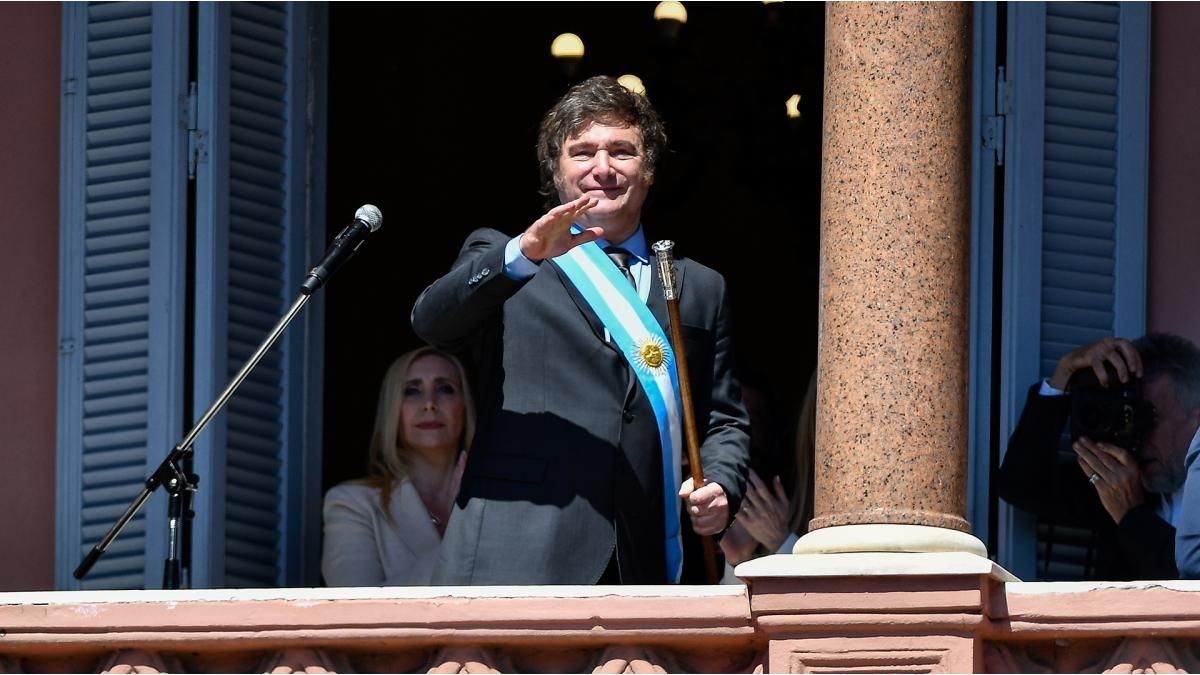Before the presidential inauguration of Javier Milei, there was a broad consensus among analysts on the need to apply a stabilization plan. The chronic shortage of foreign currency, exacerbated by the effect of the greatest drought in history, was reflected in the loss of reserves, stagnation and the weakness of the peso.
The macroeconomic order had to decompress the tension between the availability of foreign currency and imports and external debt commitments. To avoid an adjustment in an election year with a significant impact on aggregate demand that would reduce foreign currency consumption, former minister Sergio Massa, in addition to maintaining restrictions on external purchases, negotiate with the IMF to unblock financing and resort to alternative sources of sovereign credit assistance (IDB, CAF, Qatar and swap with China), had devised a scheme that sought to encourage the liquidation of exports, known as 80-20, which is still applied; enables foreign sales to be settled by 80% at the official exchange rate and 20% at the CCL, which improves the exporter’s profitability.
However, these measures, as well as the staggered increases in interest rates (from 75% to 133% for fixed terms in 2023), the development of large investments in the Presidente Néstor Kirchner gas pipeline and other differential and sectoral exchange rates They had not had enough impact on foreign trade to oxygenate the exchange market and thus appease expectations of devaluation.
The imbalance was structural and required a plan of considerably greater magnitude. It could be hoped that a new administration, backed by the popular vote, could carry it out. It had to require basic consensus to reach general and sectoral agreements and, for that, the political capital of an incoming government seemed essential, especially due to the magnitude of the challenge which, without access to external financing, made it very complex. The long period without growth generated discontent, although, in the first order and by a wide margin as urgency, the need to combat inflation and recover the purchasing power of the great majorities appeared.
In that mixed context, Javier Milei assumed that he decided to deploy an orthodox adjustment program of ultra-powerful and stark shock. The change in model was abrupt and was expressed in very important movements in relative prices and a deep contraction of the product.
Beyond the recovery of agriculture due to climatic factors, the rest of the sectors will experience losses of more than 5% this year. For example, the IMF, which usually makes projections that underestimate crises in countries that apply orthodox policies, calculated last February a fall in non-agricultural GDP of 5.2% in 2024.
The tension of the redistributive effect in a clearly regressive sense was obscene due to the deterioration of the income of active and passive workers. But the measures applied so far also boosted a group of large companies with absolutely disproportionate profits, especially considering the drop in production and the impact on the millions of losers. That is to say, the pie shrank and a few, almost without visibility in an environment dominated by abundant economic information, took much larger portions of income, without even mediating a debate. It could be a striking favoritism towards sectors that concentrate wealth not linked to their productive or investment performance, malpractice or, what is more apparent, a combination of favoritism and malpractice.
In general, the large export sectors (agriculture, mining, energy, petrochemicals and some manufacturing inputs such as leather, aluminum and steel) were brilliant winners in the first quarter of the government by various measures and, among them, the oil companies stood out.
The first milestone was the brutality of the devaluation adjustment, which was above all forecasts. A report from mid-October last year by LatinFocus Consensus – it brings together the projections of consulting firms and banks (they tend to have very similar opinions) – indicated that in December 2023 the official dollar was going to rise to 590 pesos. If this estimate materialized, the jump compared to the October price would be 70%. Thus, specialists believed that there was going to be the largest devaluation since the exit of Convertibility. Anyway, they underestimated her. The exchange rate exceeded the expected average by 43% and the dollar reached 845 pesos at the end of the year.
The second notable fact that made the adjustment more painful and tilted the balance towards the items of the most concentrated companies and with a demand less sensitive to price variations because they are primary consumption and with export capacity (gasoline, medicines and basic foods) It was the loquacity of the newly inaugurated President that induced prices to rise quickly and to the greatest extent possible given that, according to his calculations, a process of hyperinflation was already being recorded. The most intuitive reading was the following: if they suddenly release price controls and the highest public authority exaggerates inflation and assures that it is “traveling at 3,678% annually”, a race is triggered and companies that delay and/or raise their prices little prices will lag behind and, therefore, will lose an important portion of their relative income. Service stations were on edge. In three and a half months, fuel prices increased around 180% with a drop in consumption of 20%, which implies that their income rose more than 120% with accumulated inflation of around 75% and with sectoral salaries. which rose even less (43% in January and 14% in February).
To make matters worse, the overreaction of the increases was not accompanied by agreements with the large exporting sectors. A one-day rise of 118% in the dollar should have provided relief for the companies that were going to benefit enormously from this measure to have a counterpart. There were not even public investment commitments that could have underpinned Milei’s management. The textbook compensatory policy (the increase in export duties) was a nonsense in its attempted implementation. With an infantile simplification (withholdings of 15% of the floor for all, except hydrocarbons and mining, which were going to continue with 8%, according to the omnibus law), the management failed to generate a counterweight that would have strengthened tax collection to mitigate the adjustment or apply countercyclical policies. Also, with better negotiating attunement, it could have moderated price increases or conditioned the winners to invest.
The finishing touch in favor of exporters was the continuity of the 80-20 scheme that has become the main channel for injecting foreign currency into the exchange market. As a great achievement, it has largely contributed to the very significant reduction of the exchange rate gap in the most intense real appreciation process since the initial phase of Convertibility. Along with the recession, this dynamic impacts the strong inflationary slowdown sought by Milei. However, it does not look sustainable without the spread of real investments, infrastructure development (without public works, it will not happen), productive planning and increased productivity.
Another big winner of the initial phase of the government has been the financial sector. With portfolios full of sovereign bonds adjustable by CER and dollar linked, the mega devaluation blew up their yields overnight. Even, having earned as much and without remuneration as a minimum quota of credits could have been under advantageous conditions for SME productive investment, they managed to cap the UVA fixed terms at 5 million pesos and condition them to a 180-day minimum term, to the detriment of the small ones. savers. The case of the Macro bank is illustrative. In the fourth quarter of 2023, it reported a net profit of $569 million, which was 789% higher than that obtained in the same period of 2022, and in the three months of the LLA government it doubled the value of its shares on Wall Street. .
A pillar of the banks’ business, credit cards, also benefited from two measures. First, Milei released the commissions charged to businesses (the maximum was 1.5% for debit and 3% for credit for the total amount of the operation) and now they can also freely set the commissions to discriminate between large businesses and SMEs. In addition to increasing the banks’ income, the decision implies a substantial loss of competitiveness. Everything that is sold must include in the price the added cost of the higher commissions. And, second, the DNU deregulated the collection of punitive interest. In an economy with high inflation, the use of plastics is more necessary and, consequently, the increase in interest for non-compliance guarantees more profitability.
Prepaid medicine companies cannot be missing from the list of winners. Under the protection of the DNU, they skim the private health business with complete freedom to the detriment of families who are left unprotected by increases in fees and abusive conditions.
The social and productive cost for the rest of the economy is unbearable and unfair. This experience of broad-brush policies without gradualness or conditions for the few who get rich in sectors where the access of new competitors is practically prohibited due to scale and time to recover investments subjugates the vast majority. And, at the same time, it condemns abuse in markets with captive consumers and tradable activities fundamentally linked to the exploitation of our country’s natural resources to be only good business.
Economist, advisor to companies and industrial chambers, teacher and lecturer.
Source: Ambito
David William is a talented author who has made a name for himself in the world of writing. He is a professional author who writes on a wide range of topics, from general interest to opinion news. David is currently working as a writer at 24 hours worlds where he brings his unique perspective and in-depth research to his articles, making them both informative and engaging.




